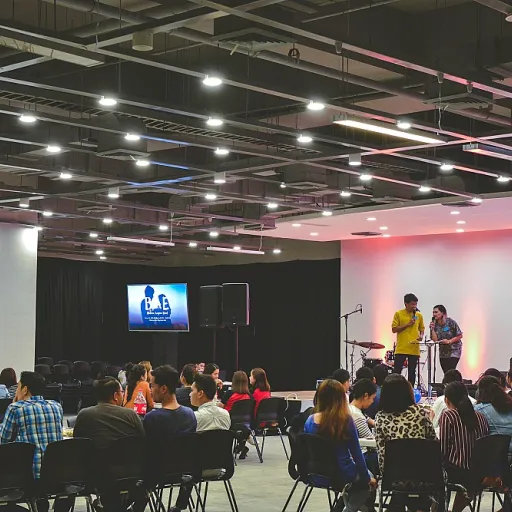
The Importance of Time in Remote Work
Understanding the Value of Time in Remote Work Projects
In the realm of remote work, time emerges as one of the most critical resources that need careful management. For project managers and their teams, the effective utilization of this resource can make or break the success of a project. The way time is allocated, tracked, and managed has a profound impact on productivity and the overall efficiency of remote work projects.
Time management in remote work is not just about sticking to a strict schedule. It involves the strategic allocation of resources to tasks to ensure every team member is contributing to the project goals in a meaningful way. This requires a deep understanding of the project needs, the capability of human resources involved, and the tools available for efficient process management.
The absence of the traditional office environment adds a layer of complexity to resource allocation and task management. Without the immediate oversight, remote project managers rely on digital management tools and software to track time and resources. These solutions help maintain the project schedule and allow for real-time tracking of task completion.
Projects also demand a dynamic approach to time management, where the ability to adapt to new challenges is crucial. For instance, effective project time management involves balancing flexibility with structure, allowing team members the freedom to work at their own pace while meeting deadlines. This blend of flexibility and structure in time allocation helps maintain a productive work environment.
As remote work opportunities continue to grow, particularly in diverse geographical locations like Texas, understanding the dynamics of time as a resource can provide a significant edge. Exploring remote work opportunities in such areas can offer insights into efficient project management strategies.
Challenges of Time Management in Remote Work
Common Obstacles in Mastering Time Management
Effective time management is a crucial aspect of remote work, yet it often presents considerable challenges. Understanding these challenges can help remote workers and project managers develop strategies to overcome them. One of the primary hurdles is the absence of a structured environment that an office typically provides. In remote settings, team members may struggle without explicit boundaries between personal and professional tasks, leading to inefficient time allocation. The ubiquitous nature of devices can lead to distractions, which might skew resource utilization and allocation. Lack of direct oversight can also complicate time management. Without a project manager physically present to track progress, team members might deviate from the project schedule, affecting the project's overall time spent and efficiency. Furthermore, coordinating across time zones complicates project management processes. The distribution of team members globally means that synchronizing real-time collaboration requires meticulous planning and the use of effective management tools. Another significant challenge involves ensuring that all team members accurately track time. Inaccuracies in time tracking can result in misallocation of resources, leading to an imbalanced management plan. Time spent on a task must be billable, accounted accurately, and communicated transparently for optimal resource management. Utilizing innovative tools can help mitigate some of these hurdles. Leveraging cloud-based productivity suites aids in organizing tasks and maintaining a real-time perspective over ongoing projects. For more insights on enhancing remote work efficiency, consider visiting Enhancing Remote Work Efficiency with Cloud-Based Productivity Suites. Finally, project managers must navigate these challenges while maintaining effective project management strategies. Creating a balanced approach that supports resource allocation and aids teams in achieving their objectives is essential. Recognizing time as a valuable resource and addressing these challenges can significantly impact the success of remote work projects.Strategies for Effective Time Management
Unlocking the Potential: Smart Strategies for Time Management
In the world of remote work, where projects demand precision and dedication, mastering the art of time management is crucial. Remote teams, often dispersed across different time zones, confront unique challenges that can impact productivity. Yet, with strategic planning and utilization of the right resources, these hurdles can be transformed into opportunities for growth and efficiency. One effective strategy for managing your time is the careful allocation of resources. By planning out tasks and assigning them to the appropriate team members based on their strengths and availability, projects can flow more smoothly. Project managers frequently rely on tools like Gantt charts for project scheduling, ensuring that every task fits neatly within the broader project management plan. Moreover, time tracking is an invaluable resource that helps managers and team members alike gauge time spent on tasks and adjust their strategies accordingly. Utilizing management software equipped with time tracking features ensures that both billable and non-billable hours are accounted for, enhancing overall project efficiency. This process not only assists in better time allocation but also elevates the utilization of available resources. The integration of effective project management tools also plays a pivotal role. Reliable management software can provide project managers with real-time data about task progress and resource utilization, enabling them to make informed decisions swiftly. This level of insight ensures that any deviations from the plan can be corrected before they escalate, maintaining the integrity of the project schedule. While some team members may initially resist the structure that time management demands, it’s crucial to remember that flexibility also plays a part. Striking the right balance between structure and adaptability not only contributes to the success of remote teams but also fosters a healthy work environment, as discussed in this guide on crafting the perfect sick day message. Ultimately, the secret to effective time management lies in the seamless fusion of strategy and technology. By incorporating these strategic approaches and leveraging technological advancements, remote work projects can unlock new levels of success and efficiency.Balancing Flexibility and Structure
Structuring Flexibility within Remote Work Dynamics
In the realm of remote work, balancing flexibility with structure is crucial. Flexibility often draws professionals to remote work, offering the freedom to carve out a work schedule that aligns with personal preferences and peak productivity periods. Yet, this flexibility must coexist with a structured approach to project management to ensure resource optimization and timely delivery.
Project managers are pivotal in shaping this balance. They need to create a management plan that accommodates both individual team members' flexibility and the collective schedule's structure. This involves the strategic allocation of resources to maintain a harmonious workflow across all projects.
Effective project time management encompasses a dynamic process where team members communicate their availability and managers track project schedules accordingly. Tools such as Gantt charts can aid in efficiently visualizing project timelines, helping teams allocate resources where they are needed most.
Processes and tools that foster structured flexibility include the implementation of time tracking software and project management tools. These help track time spent on tasks and projects in real time, providing valuable insights for project resource management. Furthermore, recognizing the billable hours and tracking project time diligently aids in better resource allocation, ensuring that each team member's time is utilized efficiently.
Ultimately, blending flexibility with structure in remote work requires a continuous assessment of resource utilization. By adopting a structured yet adaptable approach, teams can meet their goals without compromising on the flexibility that makes remote work appealing in the first place.
The Role of Technology in Time Management
The Power of Technology in Managing Time Efficiently
In the realm of remote work, the integration of technology is indispensable for effective time management. As remote projects grow in complexity, time tracking and management software become critical resources for project managers and their teams. Such tools assist in keeping the project schedule on track, ensuring that all tasks are accomplished within the stipulated timeframe. Project management software, incorporating features like Gantt charts, facilitates these processes by providing visual representations of project timelines. Gantt charts help both project managers and team members to see how tasks are interlinked, predict potential delays, and reallocate resources when necessary. This visual tool simplifies the management of tasks within a project, allowing for a more strategic approach to resource allocation. Moreover, real-time time tracking capabilities offered by these tools empower teams to monitor their progress continuously. This function is vital for the resource utilization and resource management within the broader context of project management. By enabling precise tracking of time spent on various tasks, teams can provide a more accurate account of billable hours, which directly impacts the profitability of remote projects. Utilizing management software also aids in improving communication among distributed teams. Asynchronous communication tools, combined with real-time tracking, ensure that team members are aligned with the project timeline at all times. This alignment helps prevent misunderstandings and ensures that every team member is aware of their roles and responsibilities. Ultimately, the implementation of appropriate technology in project management not only streamlines the time management process but also enhances the overall effectiveness of remote work projects. By equipping project teams with innovative management tools, it’s possible to foster a more productive and collaborative work environment, wherein every team member can contribute to the shared goal efficiently.Measuring Time Efficiency in Remote Projects
Assessing Time Utilization in Remote Work
In remote work, the measurement of time efficiency becomes a critical component. Properly tracking how time is allocated to various tasks can provide valuable insights that guide project management decisions, optimizing both resource utilization and project outcomes. Accurate time tracking can highlight areas for improvement and enhance overall productivity.
Project managers often rely on a combination of time tracking tools and methodologies like Gantt charts to assess the time spent on different phases of a project. These tools help ensure that each team member's contributions are effectively aligned with the project schedule, allowing for better resource allocation and utilization.
A practical approach to measuring time involves establishing key performance indicators (KPIs). These KPIs can include the amount of billable hours, adherence to project timelines, and the efficiency of task completion. Such metrics allow project managers to make informed decisions, adapting strategies as needed to meet project goals and deadlines.
Some management software solutions provide real-time tracking capabilities, allowing teams to see immediate feedback on their time usage and make adjustments on the fly. This incorporation of real-time data helps teams maintain flexibility and structure, striking a balance that enhances efficiency and improves overall project management.
Ultimately, understanding how each task is tied to the project's success is essential. By consistently measuring and analyzing time efficiency, project teams are empowered to refine their processes, reduce burnout, and increase satisfaction across the board.













